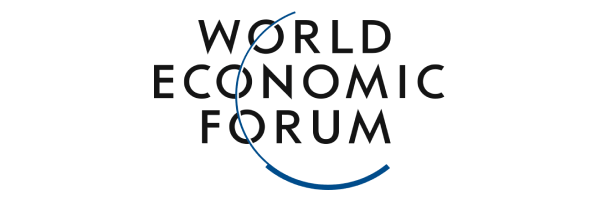Audata, a SaaS platform for media and entertainment companies, began as a side project to fix an everyday frustration. While working as a radio presenter, founder Keegan Bakker got tired of manually collecting contest winner details live on air, so he built a small app that sent winners a text and let them submit their own information.
That single-purpose tool proved useful enough to catch on. Over time, Audata evolved into a suite of tools powering promotions, messaging, and voice-based audience engagement for major broadcasters across Australia, the U.K., and beyond. From the very beginning, Heroku made it easy to get the app running. As Audata grew, Heroku grew with them, supporting everything from fast deployment workflows to global customer support powered by AI.
From personal project to industry standard
When Keegan first built the prototype for Audata Promo, he wasn’t looking to start a company—he just needed something simple that worked. As a self-taught developer, he was able to write the application with Rails, but without a formal DevOps background, his first attempts to get the app running on AWS Elastic Beanstalk were frustrating. The build wouldn’t deploy, and the setup was too complex. Heroku, on the other hand, worked on the first try. He connected his GitHub repo, pushed the code, and it just ran.
What started as a quick-fix solution became something bigger. The app turned out to be a huge time saver not just for Keegan, but also for his on-air colleagues, and was eventually adopted as a standard across many stations in Australia and New Zealand.
In 2019, Keegan left radio to focus on Audata full time, scaling the product into a multi-solution platform. As Audata expanded to serve major broadcasting networks, new challenges emerged: rapid prototyping, enterprise-grade security, and global support across time zones. Media clients expected uptime, compliance, and seamless integration, all without slowing the pace of innovation.
Other platforms could have supported these needs, but required significant DevOps investment. Audata didn’t want the overhead. Heroku’s built-in tooling, managed services, and developer-friendly experience made it possible to keep shipping fast while meeting enterprise expectations.
Building a platform to connect and scale
As Audata expanded from a single product into a suite—including Promo, Messenger, and Connect—Heroku remained central to how the team shipped new features and supported customers. The engineering team used Heroku Pipelines and Review Apps to streamline testing and deployment, with each major product relying on Heroku Postgres and Heroku Key-Value Store for secure, managed data services. Built-in CI/CD workflows and simplified infrastructure management allowed the team to move quickly and stay focused on shipping the features their customers needed—without getting bogged down in DevOps.
Connecting business systems with Heroku Connect and Salesforce
To manage contracts, licensing, and support for enterprise customers, Audata added Salesforce—using Sales Cloud, Service Cloud, and Service Cloud Voice—and integrated it with Heroku via Heroku Connect. That integration enables seamless data flow between their internal business systems and their customer-facing apps. For example, when a sales rep configures a quote using Salesforce CPQ, the associated product entitlements are automatically provisioned through Audata’s Heroku backend.
Scaling global support with AI agents and Heroku
More recently, Audata adopted Salesforce Agentforce to scale global support while keeping service quality high. Their AI-powered agent—called Aura—can now triage incoming cases, summarize context, and deflect routine questions using real data from Heroku Postgres, Salesforce Service Cloud, and Audata’s internal knowledge base. When a case is escalated, Aura hands it off with a full summary, helping human agents resolve issues faster and focus their time on higher-value interactions. It’s a fully integrated, cross-platform support experience that’s especially valuable as the company expands into Europe and the Middle East.
A lightweight, powerful customer touchpoint with Agentforce and Heroku
One solution example is their Heroku-hosted idea voting microsite. Built as a lightweight app on Heroku, the site allows customers to view and vote on feature requests. When a new request comes in via Agentforce, the system creates a corresponding entry in Salesforce and Heroku, instantly syncing it across support workflows and the live public site. It’s a small but powerful example of how tightly integrated their stack has become, with AI agents, business logic, and customer-facing apps all connected.
We’ve built our platform to move fast, and Agentforce fits right into that mindset. It’s not just answering questions—it’s actually taking action, using real-time data from Heroku and Salesforce to help us support customers more intelligently.
Keegan Bakker, Founder & CEO, Audata
Faster support, higher revenue, no tech debt
Heroku gave Audata the freedom to scale its product line, enter new markets, and support global customers, without adding technical debt or overhead. Together with Salesforce and Agentforce, the stack now helps Audata move faster, support more users, and stay focused on building.
Expanded reach with no added headcount
As Audata expanded into additional countries with varied time zones, Agentforce provided around-the-clock support coverage without requiring 24/7 staffing. The team expects about 60% of support queries to be resolved by Agentforce, helping them scale internationally with zero increase in headcount.
Accelerated revenue growth
Backed by these operational efficiencies, Audata projects their efforts to grow revenue by at least 50% in the coming year. The team is adding new customers while keeping its focus on product innovation and customer experience.
Faster shipping, fewer roadblocks
Heroku Pipelines and Review Apps continue to streamline Audata’s developer workflow, supporting fast MVP development and high-quality releases. The team ships new products, like Messenger and Connect, with speed and confidence, without needing a dedicated DevOps team.
Agentforce helps us scale support without losing our personal touch—it handles the basics so our team can focus where it matters.
Keegan Bakker, Founder & CEO, Audata
What’s next for Audata?
Audata continues to use Heroku as its go-to platform for rapid development and experimentation. New product ideas—like their Messenger and Connect modules—are first prototyped and tested on Heroku before being scaled to production. As their customer base grows, they plan to deepen their use of Heroku Connect and Postgres to power more real-time data experiences across their Salesforce and customer-facing applications.
With enterprise broadcasters across multiple regions now onboard, Audata is focused on sustainable global growth. The team is actively expanding into new regions while continuing to evolve its product suite to meet the fast-changing needs of the media industry. Their AI agent, Aura, powered by Agentforce, will play a growing role—not only in support, but also in sales and internal operations—helping the team stay lean, responsive, and focused on innovation. To explore how Audata is building smarter broadcast tech with Heroku and Salesforce, visit audata.io.
Launch your next project with Heroku
How they did it
- Used Heroku Pipelines and Review Apps to prototype and ship new features across products like Audata Promo, Messenger, and Connect.
- Synced Salesforce CPQ and Service Cloud data with Heroku Postgres using Heroku Connect to automate licensing, support, and contract management.
- Deployed Agentforce on Salesforce to power a generative AI agent that accesses both Salesforce and Heroku data to resolve support requests and triage complex issues.
- Built a lightweight feature voting microsite on Heroku, automatically populated by Agentforce and synced with Salesforce for end-to-end visibility across platforms.




